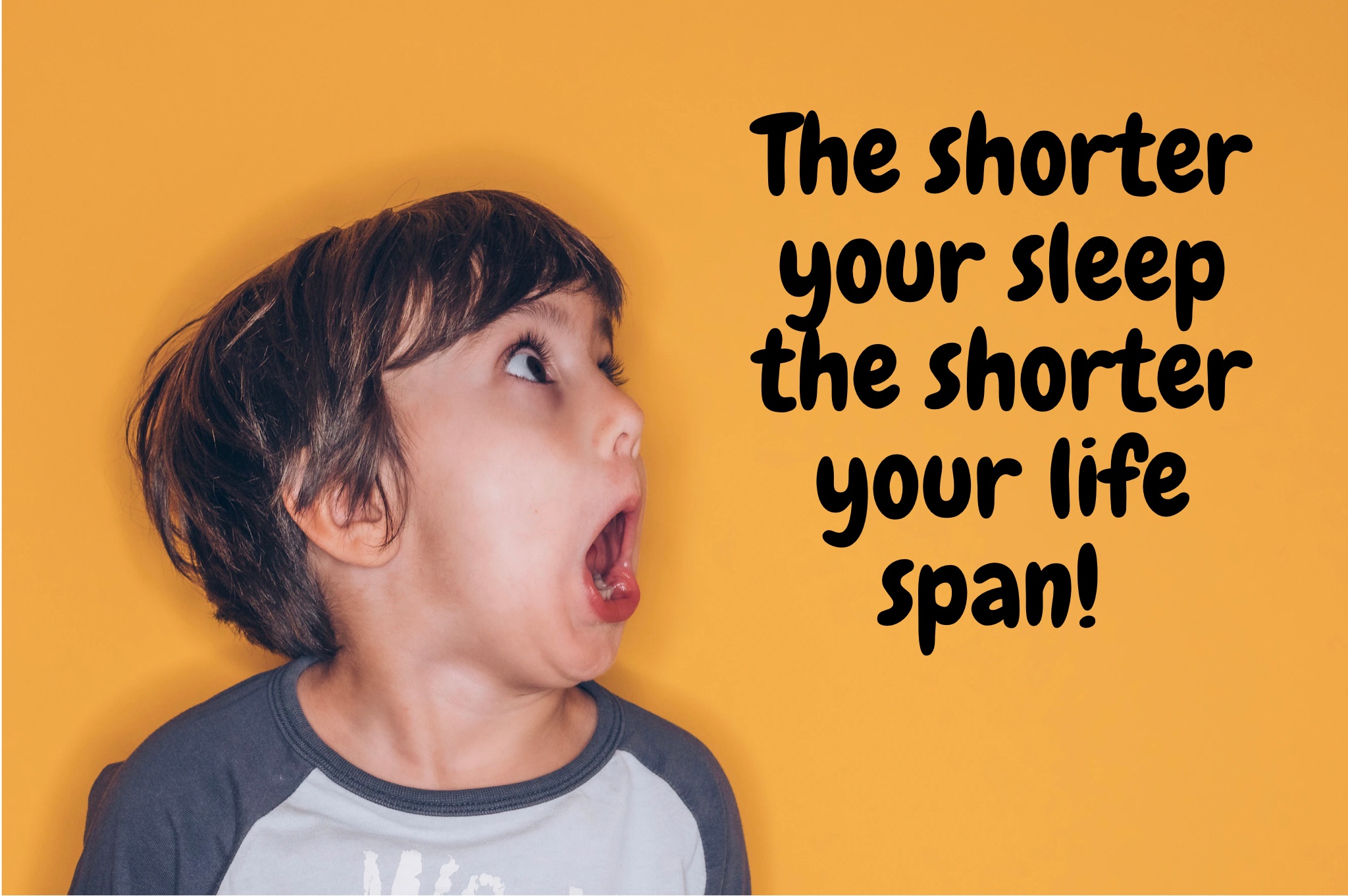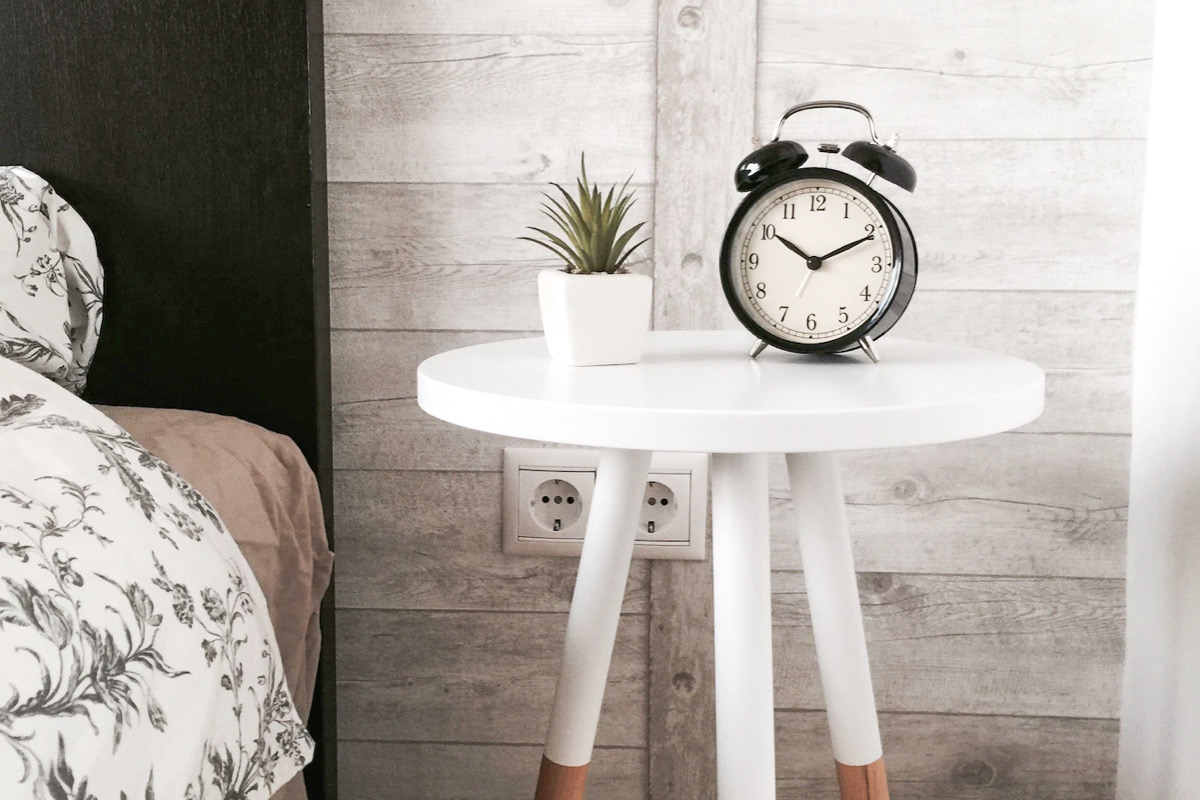Did you know... how much sleep you get has a huge effect on your physical and mental health?
When you sleep 7 hours or less a night on average you are not getting enough sleep. If you have a teenager their needs are greater, with 9 to 10 hours a night being a healthy average! The less sleep you get each night and the negative effects of reduced sleep can increase exponentially. This is also true for the quality of sleep each night. Sleep enough hours but sleep poorly and negative effects can occur.
You need enough sleep (quantity) and healthy sleep (quality) each night.
Can you remember the last time you woke up without an alarm clock, feeling refreshed, not needing that morning cup of coffee?
With less sleep this can happen…
Routinely sleeping less than six hours a night weakens your immune system, significantly increasing your risk of certain cancers. (30 – 40% increased risk!)
Insufficient sleep is linked to a higher likelihood of developing Alzheimer’s Disease.
Reducing your sleep for just one week disrupts blood sugar levels so profoundly that you would be classified as pre-diabetic.
Sleep less and the hormones that tell us we are full and suppress hunger go ‘out-of-whack’ creating a feeling of hunger even after having eaten enough. You are still hungry! Add to this when we don't get enough sleep our food choices are poorer. We start choosing higher carb and fat options.
Losing weight becomes difficult as well with less sleep, and when you do lose weight you will tend to lose muscle mass instead of burning fat.
When we don’t get enough sleep, we start to lean to a fear-based perspective of our environment. Situations or people that should be viewed as neutral are now more threatening with reduced sleep, over time.
“The shorter your sleep the shorter your life span.” Matthew Walker PhD, Why We Sleep

SLEEP AND TEENS
There are increased risk factors for teenagers and suicide with less sleep. Suicidal thoughts are shown to increase with every of sleep lost per night.
With each hour of sleep lost per night their suicide risk increases, exponentially.
The risk of developing a major mental health disorder later in life also increases significantly when teens don’t get enough sleep.
Moodiness, behavioral issues, a decreased lack of interest in the things that are important to your teen, as well as a tendency to isolate, are all signs that your teen is struggling with anxiety.
These are also the same symptoms that you see in a sleep deprived teen.
SYMPTOMS OF A SLEEP DEPRIVED TEEN
“Sleep disruption further contributes to all major psychiatric conditions, including depression, anxiety and suicidality.”
Matthew Walker PhD
Sports Injuries and reduced sleep.
Reduce sleep under 8 hours for teens and their risk of an injury in their sport almost doubles.
Add to this a reduced ability to repair muscles while we sleep and grow muscles and this can further impair their performance.
At this point you should be very concerned about the quantity and quality of your sleep. It is time to pay attention to how much and how well you sleep. Here is what is going on with your body when sleep is affected.
What’s one thing that you can start working on?
Creating a habit around a set bedtime and a set wake up time with an 8-hour sleep opportunity is the number one thing you can work on to start improving your sleep.
At the end of this post you can find resources to help you with your sleep and anxiety.

I am sure you’ve heard about our ‘fight or flight’ system. This is the system that kicks in when we perceive danger. Our heart beat increases, stimulating hormones like adrenaline and cortisol get dumped into our blood stream, our breathing rate increases, increasing our alertness and focus. This is a good system to have to for short periods of perceived danger, helping to keep us safe. This system should not be turned on, and kept on, for long periods.
When you are sleep deprived, or your quality of sleep is affected, your sympathetic nervous system is heightened or ‘turned up’. As we have seen there are a lot of potentially negative consequences of not sleeping enough.
When we are anxious, we have an increased ‘fight or flight’ response.
When we are sleep deprived, we have an increased ‘fight or flight’ response.
Anxiousness can make it harder to fall asleep.
Reduced sleep can make us feel more anxious.
There was a heightened sympathetic nervous system response in almost every sleep study done where sleep quality and/or quantity was reduced.
Fight or flight, let’s talk about this. What does this feel like?
What does the fight or flight process feel like? When we are faced with something frightening, you can feel your heartbeat quicken, you may start breathing faster, and your entire body becomes tense and ready to take act. You may experience sweaty palms and feel nauseated or sick to your stomach. Shaking and tremors can also occur.
Anxiety is an emotion that can be helpful or harmful. When we think of this emotion we need to focus on 3 things. The frequency of our anxious feelings, the duration or length of time that this emotion is lasting, and the intensity, or how strong this emotion is. Finally, what is the impact that anxiety has on our daily life?
FREQUENCY - DURATION - INTENSITY - IMPACT
We need to pay attention to our emotions and process what might be triggering them. If the effect on our ability to do our job, succeed in school, or on our relationships is negative and preventing us from thriving in these areas then we need to act.
I can just catch up on my sleep over the weekend.
SLEEP DEBT
Get too little sleep throughout the week and your sleep debt is too big to repay on the weekend. You are unable to ‘pay back’ your sleep debt over the weekend if you are sleeping 6 hours a night during the week. Sleeping 5 nights at 6 hours per night and your sleep debt is now an extra 10 hours to add to the nights you are sleeping on the weekend.
In an attempt to improve your feelings of anxiousness, distress or worry, getting enough sleep each night can significantly improve how you are feeling.
Imagine you are driving a Jeep Wrangler with large off-road tires up a treacherous, rocky trail. The road looks difficult, and your Jeep is just the vehicle to get you to the top. Reduced sleep is like flattening 3 of the 4 tires, emptying half of the oil out of the engine, puncturing the radiator, basically taking away the mechanical function of your Jeep, making it much harder, if not impossible now to navigate the trail.
Life is going to throw rough trails and obstacles at us. There will be tough times. The better your physical health and the better you handle the trials of life.
Not getting enough sleep is like hijacking your Jeep. It makes the trail that much harder, or even impossible.

Sleep less and we trend towards catastrophizing the events around us. We have all experienced this. I have been more irritable, more anxious about small events, with a poor night’s sleep.
Add chronic caffeine usage to the mix and we are blunting the cortisol releasing effects of caffeine while blocking our sleep drive or sleep pressure. Caffeine does this through blocking our adenosine receptors in our brain. This keeps us more alert, for longer, but the adenosine continues to build up throughout the day. In the end we just need to get some rest.
How do I know if I am getting enough sleep?
After waking up in the morning could you fall back asleep by 10 or 11 am if given the chance?
Can you function optimally without caffeine before noon?
If you answer yes to the first question or no to the second question these are indications that a sleep study is warranted. With an accurate, medical grade at-home sleep study, over a few nights, your medical team can help you make some changes.
YOU SHOULD GET YOUR SLEEP CHECKED IF...
For more information you can take check out Better Sleep. (link)
What’s one thing that you can start working on?
Creating a habit around a set bedtime and a set wake up time with an 8-hour sleep opportunity is the number one thing you can work on to start improving your sleep.
RESOURCES
Here are links to more content and programs that address sleep as well as anxiety.
The Anxiety Project (link) is a collaboration of health professionals to help us get better with our anxiety. You can take the 21 Day Anxiety Challenge to learn skills to better cope with our feelings of anxiousness.
Better Sleep (link) is a program connecting us to home sleep studies and resources to test and better understand your sleep.
Better Sleep For Teens (link) is a program designed to help families of teenagers struggling with their teenager.
Anti-anxiety medications and effect on sleep. (link)